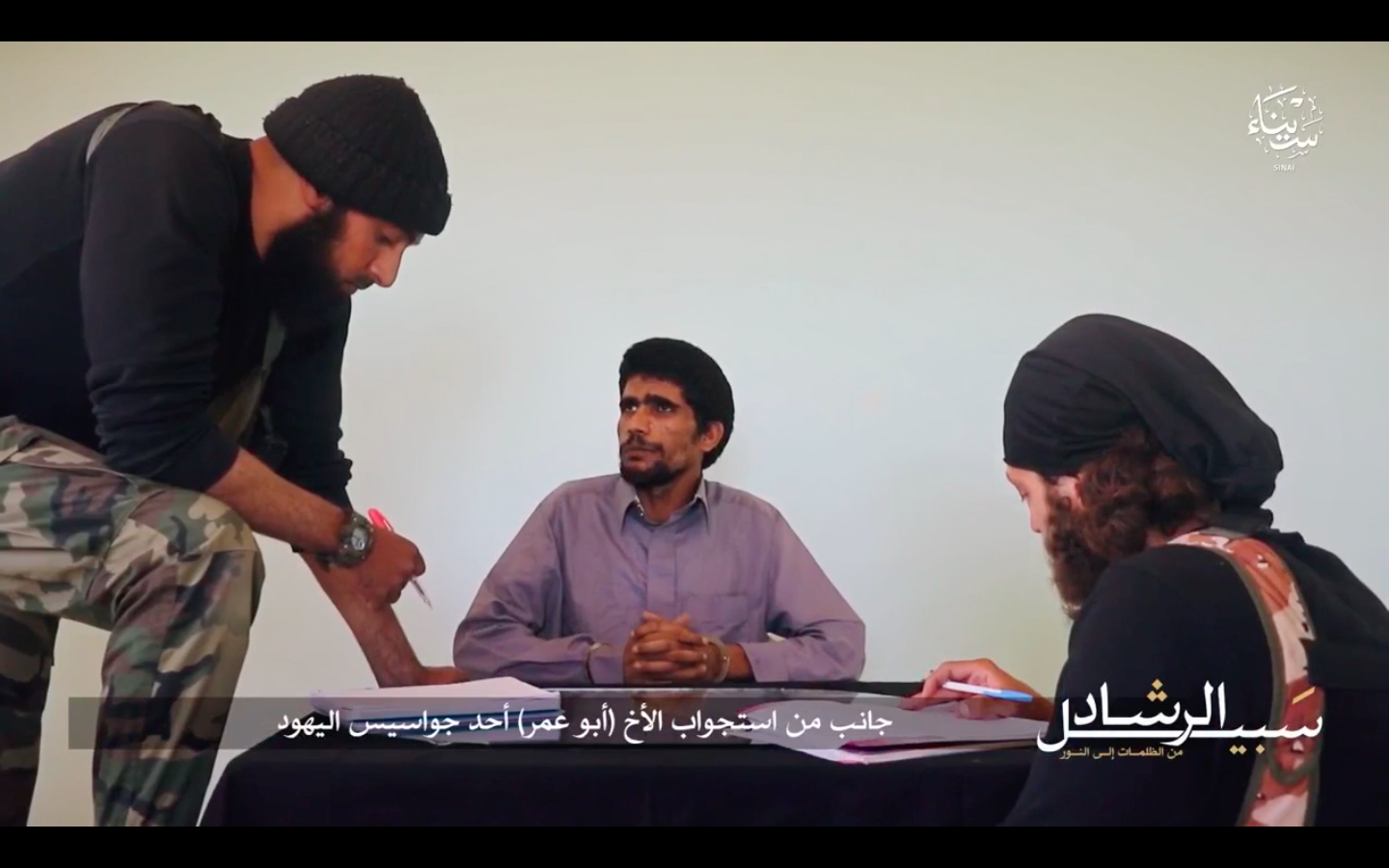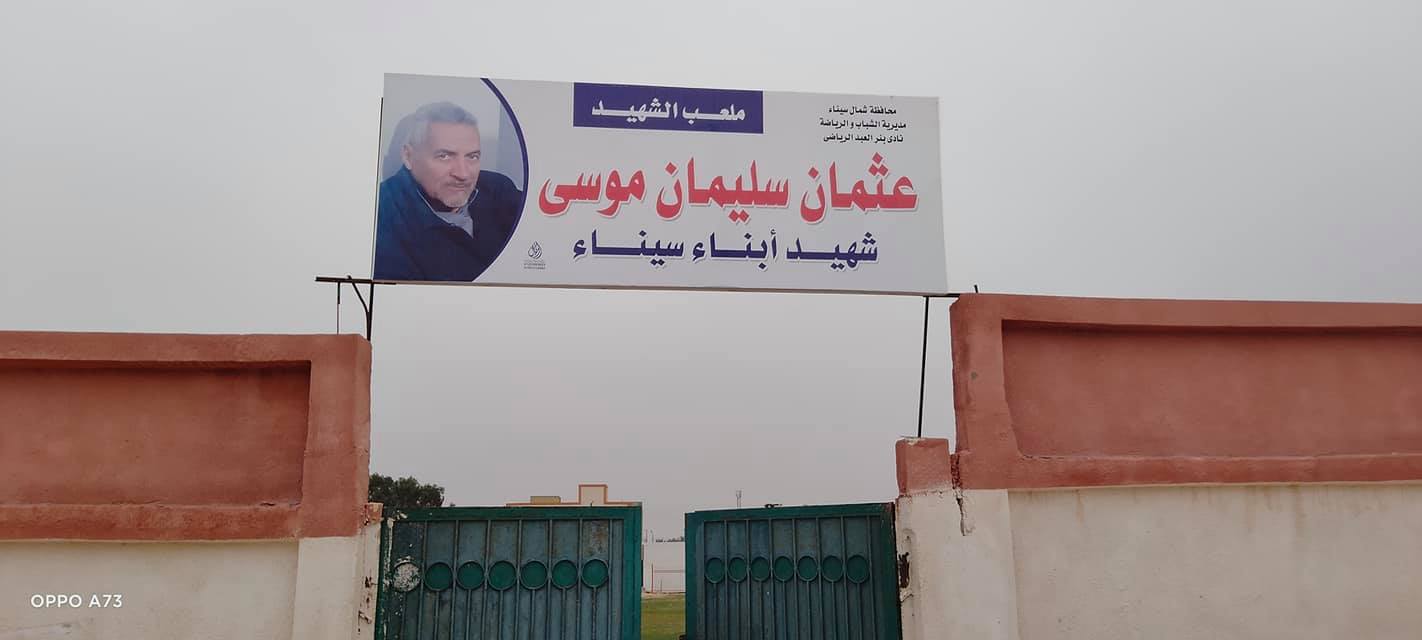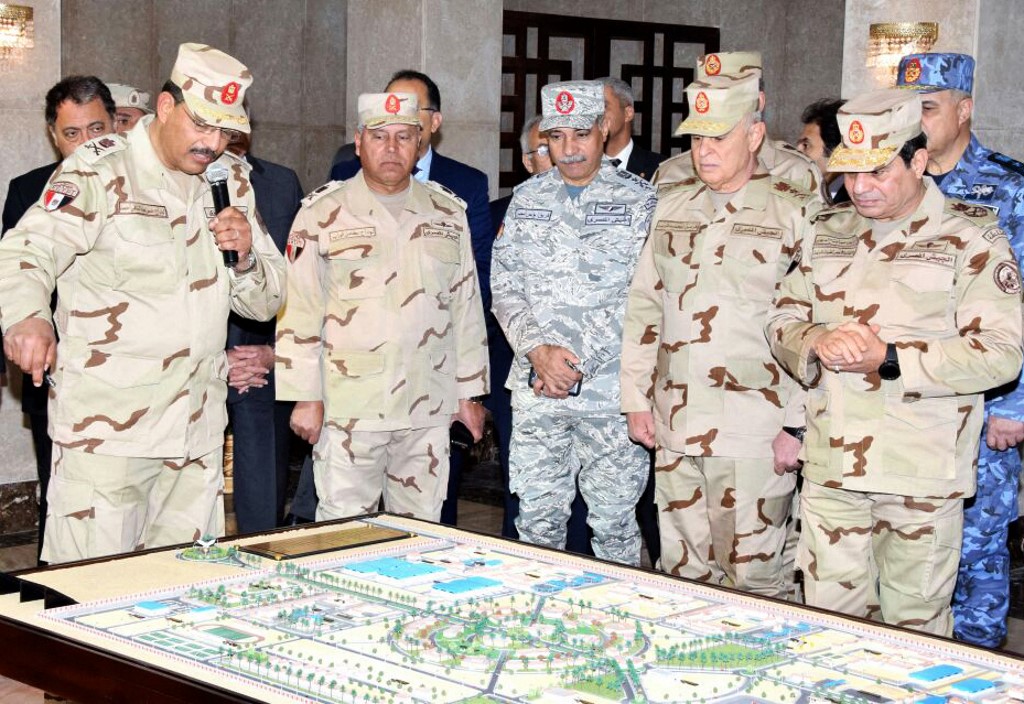Egypt: Military abandons Sinai informants to Islamic State retaliation

On 25 March, dozens of male members of the Dawaghra tribe were gathered for a group dinner when four pick-up trucks, carrying at least 23 Islamic State (IS) group militants, stormed Awamrya, a village in Bir al-Abd, North Sinai.
"The takfiris [militants] descended from the cars, fired warning shots, and beat two young men who exchanged insults with them," Maghnam, a member of the tribe, told Middle East Eye. "They ordered all the men to drop their weapons and randomly took 14 men of the tribe and left."
The militants had light weapons, knives and a machine gun fixed on one of the trucks, he said.
"They called us 'apostates' because we help the military as guides and agents," he added, explaining that the kidnapped members were fathers, sons and cousins, mostly related by blood and marriage.
Maghnam said that the militants roamed Bir al-Abd freely to reach their village.
New MEE newsletter: Jerusalem Dispatch
Sign up to get the latest insights and analysis on Israel-Palestine, alongside Turkey Unpacked and other MEE newsletters
"They know that they can do what they want and drive with their cars knowing that there is no military or police to stop them."
Dangerous collaboration
The Dawaghra is one of the several North Sinai tribes that has been assisting the military and police forces in the restive peninsula since 2014 and the rise of militant groups, mainly the IS affiliate group, the Sinai Province.
Since the kidnappings, the village has been in mourning and awaiting contact from either the military or the militants, who might ask for ransom. But many from the village, including Maghnam, fear the worst: seeing relatives and friends executed in an IS propaganda video or hearing about it on social media.
'[IS militants] know that they can do what they want and drive with their cars knowing that there is no military or police to stop them'
- Maghnam, member of a Sinai tribe
Maghnam's family's misery is a typical example of the harsh life of thousands of North Sinai residents, who live in a cut-off and war-like environment between a militarised regime and a radical militant insurgency, amid a state-imposed restriction on journalists' access to the region.
Despite the many sensational propaganda statements and feel-good TV series that are asserting the state’s alleged “elimination of terrorism”, North Sinai remains a nightmarish reality for residents.
This is especially true for the tribal community living near the border with the Gaza Strip and Israel, a reality that includes torture, mass arrests, extrajudicial killings, shortage of water and electricity, and harassment from the militants.
In its course of fighting IS militants, the Egyptian security forces have resorted to the help of local tribes, either as confidential informants (CIs) or as paramilitaries.
Like many incidents and details about Egypt's war against militants in North Sinai, little has been written or reported about this collaboration, aside from hyper-nationalist articles celebrating an undefined role of the tribes in the counterinsurgency.
But since 2013, after the intensification of the insurgency following the violent dispersal of the Rabaa Adawiya sit-in, male members of the tribal community who, voluntarily or under pressure, collaborated with the military to counter the militants have been left alone to face the backlash.
Many have been executed - their bodies often decapitated - or kidnapped by the militants, with almost no mention in the local papers or military statements, and with no recognition or honouring of them to their families.
MEE talked to family members of slain confidential informants who worked with the Egyptian military and police, as well as other North Sinai residents who were threatened with detention if they did not spy on the militants.
The military-civilian collaboration between the Egyptian army and Sinai goes back to the 1967 war, as Egypt tried to gain the Bedouins' trust after Israel had taken control of both North and South Sinai.
In much war literature, Bedouins acted as the spearhead in leading Egyptian troops and guerrilla fighters in operations before the 1973 war, with many military leaders attesting to the effectiveness and loyalty of Sinai troops.
"After Egypt regained its control over Sinai, the Bedouins and the tribes were not rewarded," Salman, a senior tribesman, said. "North Sinai remains to this day without infrastructure, proper services and national recognition.
'Officers from the state security and the military intelligence will use any weakness to recruit a man: your sick son, your wife, your criminal record, your house,'
- Salman, senior tribesman
"We are either portrayed as loyal spies for the army or the takfiris [IS militants]. They forced us to be either. One cannot stay neutral."
Salman, now in his 60s, was arrested in 2004 in South Sinai after the Taba bombings, when dozens of tourists were killed in coordinated attacks in Sinai. He said he was kept for 18 days, blindfolded and continuously interrogated, at the state security building in North Sinai.
They only allowed him to leave after he vowed to collaborate with the military to find the hideouts of the then-active militant group al-Tawhid wal-Jihad, arguably the first presence of militant extremist groups in North Sinai.
They threatened to arrest and harass his wife if he did not collaborate, a standard method of turning civilians into operatives, Salman told MEE.
"We are Bedouins; we own nothing but our honour. I had to do it to save my family."
Eventually, the elderly tribesmen had to leave for South Sinai to live in peace.
"Officers from the state security and the military intelligence will use any weakness to recruit a man: your sick son, your wife, your criminal record, your house," he said.
Checkpoints and military units are the best places for picking possible operatives, Salman added, as intelligence officers monitored the movements of travellers.
Fayad, a tribesman who works as a truck driver delivering vegetables between Suez, Ismailia and North Sinai, was detained as part of the mass arrests that took place during the 2018 Sinai campaign.
"I had a criminal record related to trafficking years ago. The officer said he could detain me for years if I did not work for him,” Fayad told MEE. “He also used the fact that I had to travel every month with my daughter to get her kidney treatment from Suez."
His first assignment was to gather information about the vegetable traders who give goods to the militants.
Fayad said he fabricated some names but was later arrested and tortured for two months. Later, after he was released, he found out that his operating officer had been transferred to another governorate.
Families in agony
While he was lucky, Fayad said that a friend of his, Mousa Osman, who used to work at the North Sinai Supply Directorate, was not. He had been kidnapped last January and executed in Bir al-Abd. In its propaganda, the Sinai Province described Osman as "a spy… working with the apostate Egyptian army".
"We later found out he was reporting to the army about black-market dealers who sell gasoline and fuel to the militants," Fayad said.
A month after his execution, the Sinai Governorate named the Bir al-Abd sports stadium after Osman.
While Osman's legacy was commemorated, the families of other executed informants remain in agony about their relatives who have been killed for collaborating with the Egyptian military.
On 25 September 2016, the family of Hussein Abu Darwish received a call from a police officer saying they had found the decapitated body of Darwish. A source in the family, who asked to be anonymous, told MEE that Darwish had collaborated with the military on many occasions.
He reported the movements of IS members and their locations to his operating officer, the relative said. In one incident, the officer used the intel and raided a den used by the militants.
At the time, Darwish repeatedly called his operating officer.
"When he answered, the officer told Darwish 'I cannot help you. You are on your own'.
"The next day, they [militants] arrested Hussein and interrogated him, and we found his head separated from his body," the relative said.
Feeling unprotected
Since 2013, the Sinai Province has been publishing footage of their militants interrogating civilians, who have confessed to working for the Egyptian military or police, Israeli intelligence or the pro-army militias. The videos serve as propaganda material to show the complexity of the group's counterintelligence operation.
Over the years, the groups have used the expertise of former security personnel, including fighters from Gaza, Libya, Syria and Iraq.
"This is not our fight," Darwish's relative said. "The military and police milk the informant for information and names, and then leave him to face his destiny unprotected."
However, not all informants who work for the military are forced to do so. Some volunteer to gain benefits, prestige and money, according to Sameh, a school teacher and member of the al-Tarabin tribe, the biggest pro-government tribal network in North Sinai.
Al-Tarabin and other tribes united in 2017 to create the Union of Sinai Tribes (UST), a paramilitary faction of pro-government militants.
Sameh said the more powerful and prosperous factions of the tribe are the only ones benefiting from this "honeymoon between the military and the Union of Sinai Tribes". The teacher, who studied in Cairo, sees the relationships as problematic.
'The military and police milk the informant for information and names, and then leave him to face his destiny unprotected'
- Relative of Sinai informant decapitated by IS
"How can we guarantee that the armed tribes do not persecute their foes and claim they are the enemy? How can we guarantee that a militiaman who works with the army in picking random civilians from the checkpoints is not arresting his neighbour whom he owes money to?"
He explained that the state had pardoned all his family from different crimes they committed before 2011 and trusted them.
"Before 2011, we were drug dealers and traffickers, and now we are the heroic fighters who fight the bad terrorism."
In a 2019 report, Human Rights Watch warned of the military's dependency on pro-government militias, that it said “use their de-facto powers to arbitrarily arrest residents and settle scores and personal disputes”, adding that they were also involved in torture and extrajudicial killings.
Denials
Aida al-Sawarka, an MP representing North Sinai and a member of the pro-military tribe al-Sawarka, condemned reports or testimonies that criticised the collaboration between the Egyptian armed forces and the militias.
Sawarka denied to MEE that the military and police recruited tribe members under pressure or used them without protecting them.
"The Union of Sinai Tribes assists the Egyptian military with information and troops when needed, as Sinai residents acknowledge the importance of eliminating terrorism as they have spent years under lack of security," Sawarka said.
The MP denied having any knowledge about the kidnappings that took place in Awamrya village. She accused the Mulsim Brotherhood of spreading false information about the situation in Sinai.
"As for the bodies that are found, they might be members of the group [the Sinai Province] who were killed, but the Brotherhood and the traitorous foreign organisations [human rights groups] distort the reality to criticise the state."
However, she also asserted that "since the beginning of the anti-terrorism campaigns, many tribesmen have lost their lives so we can enjoy peace and safety in Sinai".
This article is available in French on Middle East Eye French edition.
Middle East Eye delivers independent and unrivalled coverage and analysis of the Middle East, North Africa and beyond. To learn more about republishing this content and the associated fees, please fill out this form. More about MEE can be found here.









